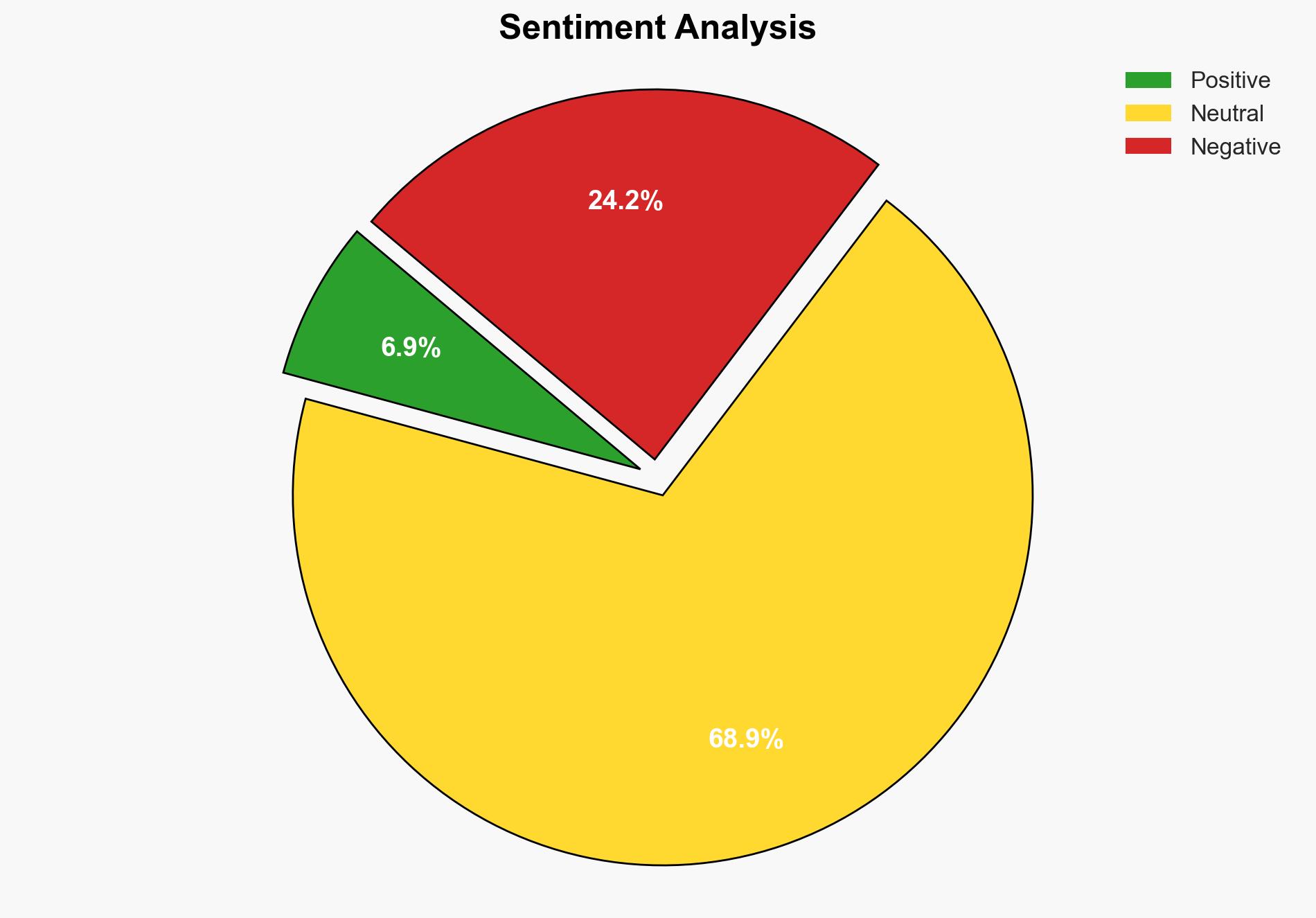Israel extends ground operations in Gaza after deadly air strikes – BBC News
Published on: 2025-03-19
Intelligence Report: Israel Extends Ground Operations in Gaza After Deadly Air Strikes – BBC News
1. BLUF (Bottom Line Up Front)
Israel has resumed ground operations in Gaza following a series of deadly air strikes. The renewed military action marks the end of a fragile ceasefire and has resulted in significant casualties and displacement within the region. The situation remains volatile, with potential for further escalation if diplomatic negotiations fail.
2. Detailed Analysis
The following structured analytic techniques have been applied for this analysis:
General Analysis
Israel’s decision to resume ground operations in Gaza follows a wave of air strikes that have reportedly killed numerous individuals, according to the Hamas-run health ministry. The Israeli Defense Forces have moved into the Netzarim corridor, signaling a significant military escalation. This action ends a ceasefire agreement that was in place since January, which included a hostage exchange deal. The ceasefire’s collapse is attributed to failed negotiations between Israel and Hamas.
The Israeli military has issued evacuation orders to Gazans, indicating a large-scale ground operation is imminent. This has led to widespread panic and displacement among Palestinian families. The situation is further complicated by the killing of UN staff in an explosion at a compound in Deir al-Balah, prompting calls for an investigation.
3. Implications and Strategic Risks
The resumption of hostilities poses significant risks to regional stability and could lead to further humanitarian crises. The potential for escalation into a broader conflict is high, with implications for national security and economic interests in the region. The destruction of infrastructure and homes in Gaza will likely exacerbate the humanitarian situation, increasing pressure on international aid organizations.
4. Recommendations and Outlook
Recommendations:
- Encourage diplomatic engagement between Israel and Hamas to re-establish a ceasefire and prevent further escalation.
- Support humanitarian aid efforts to address the immediate needs of displaced populations in Gaza.
- Consider implementing technological solutions to improve early warning systems and civilian protection measures.
Outlook:
In the best-case scenario, diplomatic efforts lead to a renewed ceasefire, reducing hostilities and allowing for humanitarian aid to reach affected areas. The worst-case scenario involves further military escalation, resulting in increased casualties and regional instability. The most likely outcome is a continued cycle of violence and negotiation, with intermittent periods of calm and conflict.
5. Key Individuals and Entities
The report mentions significant individuals such as Israel Katz and Benjamin Netanyahu. Key organizations include the Israeli Defense Forces and the Hamas-run health ministry. The UN Office for Project Services and UN Secretary General António Guterres are also noted in the context of the ongoing situation.





